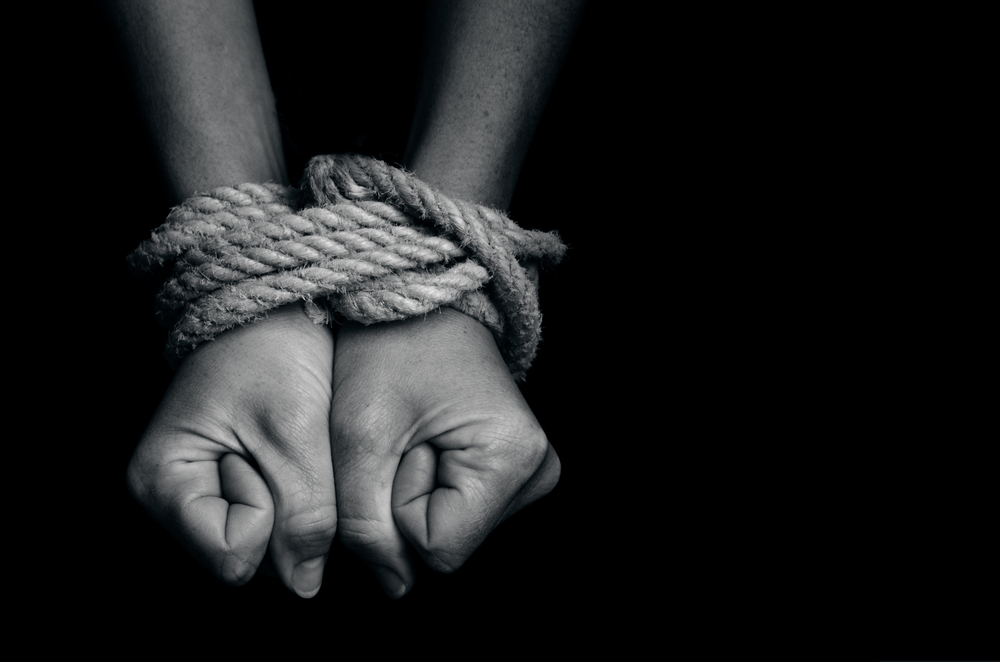Headline
4 French journalists abducted in Syria finally freed
PARIS — Ten months after their capture in Syria, four French journalists crossed the border into neighboring Turkey and reached freedom Saturday, though dozens more remain held in the country’s chaotic civil war.
Edouard Elias, Didier Francois, Nicolas Henin and Pierre Torres – all said to be in good health – were freed over the weekend in unclear circumstances in what has become the world’s most dangerous, and deadliest, conflict for journalists.
“We are very happy to be free … and it’s very nice to see the sky, to be able to walk, to be able to … speak freely,” said Francois, a noted war correspondent for Europe 1 radio, in footage recorded by the private Turkish news agency DHA. Smiling broadly, he thanked Turkish authorities for their help.
French President Francois Hollande’s office said in a statement that he felt “immense relief” over the release despite the “very trying conditions” of their captivity.
Elias, a freelance photographer, also was working for Europe 1 radio. Henin and Torres are freelance journalists.
A DHA report said soldiers on patrol found the four blindfolded and handcuffed in Turkey’s southeast Sanliurfa province late Friday. Turkish television aired images of the four at a police station and a local hospital.
It wasn’t clear whether a ransom had been paid for their release, nor which group in Syria’s chaotic 3-year-old conflict held the men. In his statement, Hollande thanked “all those” who contributed to the journalists’ release without elaborating. Longstanding French practice is to name a specific country that contributed to hostage releases. France denies it pays ransom to free its hostages.
Several of the journalists’ families told French television stations that they were recently told a “target window” was opening that could mean a return by Easter Sunday.
The four are expected to touch down in France on Sunday morning.
French Foreign Minister Laurent Fabius said in a statement that freedom for the hostages “was the result of long, difficult, precise, and necessarily discrete work.”
Journalists around France rejoiced at the news of their colleagues’ liberation.
“What’s planned is that we will hold them in our arms,” said an exuberant Europe 1 chief Fabien Namias on iTele TV news channel.
The four went missing in June 2013 in two incidents. Two were taken after being interrogated by extremist fighters of the Islamic State in Iraq and the Levant in the eastern province of Raqqa, said a Syrian activist who said he accompanied the journalists as translator and guide.
Hussam al-Ahmad, 23, told The Associated Press that Henin and Torres aroused the fighters’ suspicion after they entered a school and asked to take photographs of the fighters as they played football. Al-Ahmad said the fighters held them for about six hours.
During his interrogation, al-Ahmad said he was asked: “How do you let these infidels enter Syria after they killed our people in Mali?” France launched a military intervention in January 2013 in Mali that scattered Islamic extremists who had taken over the country’s north.
“I said, `These brothers are reporters. They have a humanitarian message,’ and then he got angry because I referred to the Frenchmen as my brothers,” al-Ahmad said.
Al-Ahmad said Henin and Torres were seized four days after the interrogation, likely by the Islamic State, an al-Qaida breakaway group.
Al-Ahmad, who fled to Turkey months ago after being threatened by jihadis, said he burst into tears when he heard of the journalists’ release.
“It’s a day of celebration for me,” he said.
Syria is considered the world’s most dangerous assignment for journalists. The New York-based Committee to Protect Journalists said in April that 61 journalists were kidnapped in Syria in 2013, while more than 60 have been killed since the conflict began.
The widespread abductions of journalists is unprecedented, and has been largely unreported by news organizations in the hope that keeping the kidnappings out of public view may help to negotiate the captives’ release. Jihadi groups are believed to be behind most recent kidnappings.
Christophe Deloire, director-general of Reporters Without Borders, told BFM TV the four French journalists were kept in the same place as recently freed Spanish journalists and others. He did not elaborate.
Meanwhile Saturday, the head of the mission charged with destroying Syria’s chemical weapons said the government had removed or destroyed around 80 percent of the country’s chemical weapons material. In a statement, Sigrid Kaag said at this rate, Syria could reach its deadline to eliminate its chemical weapons program within a United Nations-set deadline of June 30.
Syrian officials came under criticism for missing previous deadlines.
The civil war also bled into neighboring Lebanon. Security officials there said Saturday that soldiers detained six hard-line Syrian rebels in the northeast border town of Beit Lahia. The officials said the rebels planned to go to the nearby Syrian town of Beit Jinn, near the border with the Israeli-controlled Golan Heights. The officials spoke on condition of anonymity because they weren’t allowed to speak to journalists.
Hadid reported from Beirut. Associated Press writers Albert Aji in Damascus, Syria, and Jamey Keaten and Sylvie Corbet in Paris contributed to this report.






















